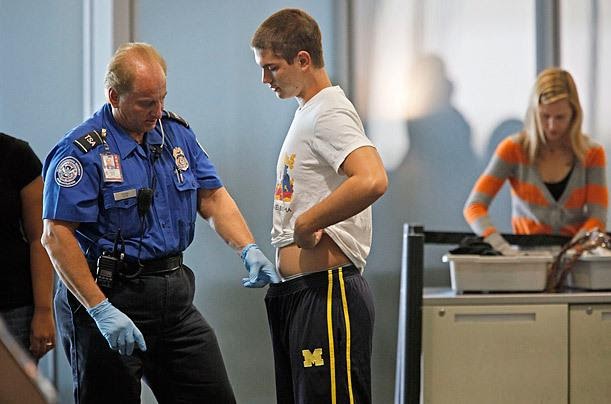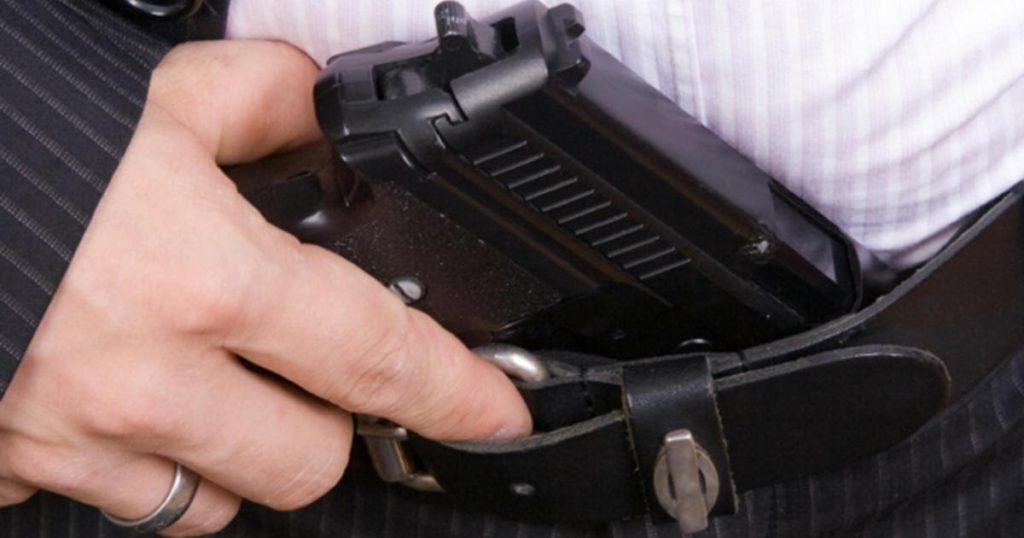In R v. Mohammed, the accused was stopped by police in a parking lot because the license plate light on his vehicle was out. A probationary constable and training officer were involved. The probationary constable approached the accused’s car and noticed marijuana smoke coming from the vehicle. She immediately placed the accused under arrest and gave him a caution that fell well short of the formal caution required. The accused was not told of the availability of legal aid or access to duty counsel.
The accused was given a pat-down search but nothing was found. The training officer then strip-searched the accused in the parking lot. The officer looked into the accused boxer shorts and saw what he thought was the butt of a magazine or gun. He unzipped the accused’s pants and dropped them to his ankles. However, he did not locate a gun.

The accused was placed in the police car while the probationary officer searched the vehicle. During the search, the officer found a debt list, cash, grinder and several cell phones near the driver’s seat. In a backpack on the rear seat, she found two zip locked bags of marijuana, a scale and ammunition.
The probationary officer told the training officer what she had found during the search. The training officer asked the accused if he was in possession of a gun and said that if he gave it to police, he would be released. The accused admitted that he had a loaded gun. The officer then asked him to retrieve it. When the accused could not do so, the officer used his knife to cut the gun from the accused’s pant leg. The accused was arrested and cautioned.
At the police station, a body cavity search was conducted on the accused. The probationary constable conducted a warrantless search of the accused’s cell phone, reviewing old messages and taking pictures of messages she considered relevant to drug trafficking.
The accused was convicted at trial of firearms and drug offences. He appealed.
The Appeal
The appeal was allowed and acquittals were entered.
On appeal, the Crown conceded that the accused’s section 7, 8 and 10(b) Charter Rights were breached. These breaches included:
- Failing to formally caution the accused upon his arrest;
- Failing to advise him of the availability of legal aid or duty counsel;
- Questioning him before he could consult with counsel;
- Strip searching him; and
- Searching his phone without a warrant.
The Crown also conceded that the text messages collected by the cell phone search should have been excluded at trial.
The issue argued on the appeal was whether the firearm and marijuana should have been excluded. The Court of Appeal noted that the search of the accused’s car was lawful and the firearm and marijuana would not be excluded on the basis of the search. However, the question was whether that evidence should be excluded because of the many Charter breaches committed by the officers.

The Court of Appeal found that the Charter breaches were significant and the strip search in the public parking lot was highly invasive. The Court also found that the training officer wrongly believed that he had the authority to strip search any male charged with any drug offence. The officer questioned the accused for 20 minutes without the accused having been told of his right to counsel or given a chance to exercise it. The accused was induced to incriminate himself and convinced to provide the gun on the false promise that he would be released. The warrantless search of the cell phone was contrary to R v. Fearon.
The Court of Appeal specifically disagreed with the Crown’s position that the impact of the breaches were not significant because the evidence was not as a result of said breaches. The breaches were significant given the totality and seriousness of the breaches. The accused was coerced to provide incriminating evidence and the search of the cell phone was highly invasive.
The Court of Appeal acknowledged that there was a strong interest in adjudicating the case on its merits given the seriousness of the offences. However, the police misconduct involved the significant violation of several Charter protected rights. The admission of the evidence would no doubt bring the administration of justice into disrepute.
Cory Wilson is a criminal lawyer based in Calgary. If you have been charged with a criminal offence or are a suspect in a criminal investigation, call today for a free, no obligation consultation.
